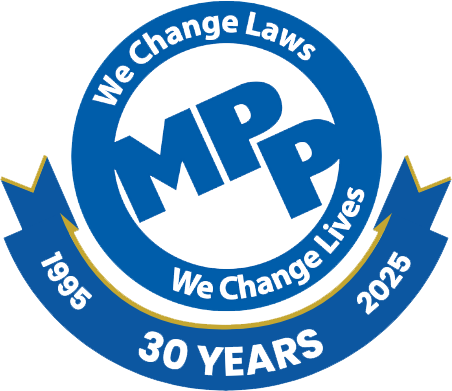- Take Action: Urge your state legislators to support a compassionate medical cannabis program!
Press Release
Administration Policy to Seek Death Penalty in Federal Drug Cases Causes Concern for Marijuana Policy Reform Advocates

FOR IMMEDIATE RELEASE
Thursday, March 22, 2018
Contact: Violet Cavendish
vcavendish@mpp.org
Official directive could be applied to cases against some state-legal marijuana producers if Justice Department follows through on threats of increased enforcement
* Statement below from Marijuana Policy Project Executive Director Matthew Schweich *
WASHINGTON — Advocates for marijuana policy reform are decrying recent directives from the Trump administration for federal prosecutors to pursue the death penalty in drug cases where it is applicable under law. While these orders seem focused on the opioid issue, there are circumstances under which this punishment could potentially be applied to state-legal marijuana producers, as well their employees and affiliated businesses.
On January 4, Attorney General Jeff Sessions rescinded a Department of Justice policy instituted in 2013 that directed federal prosecutors not to enforce federal marijuana laws against individuals and businesses that are in compliance with state medical or adult-use marijuana laws. It appears likely that spending restrictions that prevent federal interference in state medical marijuana programs will be renewed by Congress this week, but no such protections exist for states that have regulated marijuana for adults.
This move created uncertainty in states where marijuana is legal for adults, which could deter legitimate businesses from becoming involved in state marijuana programs and ensure that the marijuana market is controlled by criminal organizations.
“The actions being taken by the Trump administration are very troubling,” said Matthew Schweich, executive director of the Marijuana Policy Project. “We should not be drawing drug policy lessons from the Philippines. If this administration is serious about addressing the opioid epidemic, they can start by directing Congress to permanently eliminate the threat of federal interference in state level marijuana laws and abolish all barriers to medical marijuana research.”
Recent studies suggest that marijuana may be used to treat opiate addiction as well as many of the conditions for which opiates are commonly prescribed. Several states where marijuana is legal for medical purposes have shown links between reforming their marijuana laws and positive opiate-related public health outcomes. A study published in October by the American Journal of Public Health showed a reversal of an upward trend in opiate-related deaths in Colorado after regulated marijuana stores opened in 2014.
A Gallup poll released in October showed that 64% of Americans support making marijuana legal for adults. This was also the first time in this annual poll that a majority of Republicans polled supported legalization.
Twenty-nine states, the District of Columbia, and the U.S. territories of Guam and Puerto Rico have enacted effective medical marijuana laws. Marijuana is legal and regulated for adults in eight states, and adult possession and limited home cultivation are legal in the District of Columbia and Vermont. More than 20 states are expected to consider bills to regulate marijuana this year.
# # #
The Marijuana Policy Project is the nation’s largest marijuana policy organization. For more information, visit http://www.MarijuanaPolicy.org.
###
Founded in 1995, the Marijuana Policy Project (MPP) is the nation’s leading cannabis policy reform organization. MPP has played a central role in passing dozens of cannabis policy reforms in states across the country, including 14 successful cannabis legalization campaigns, and also works to advance federal reforms.
